The Karat Complex: A Solution to Transportation Challenges in Tropical Countries
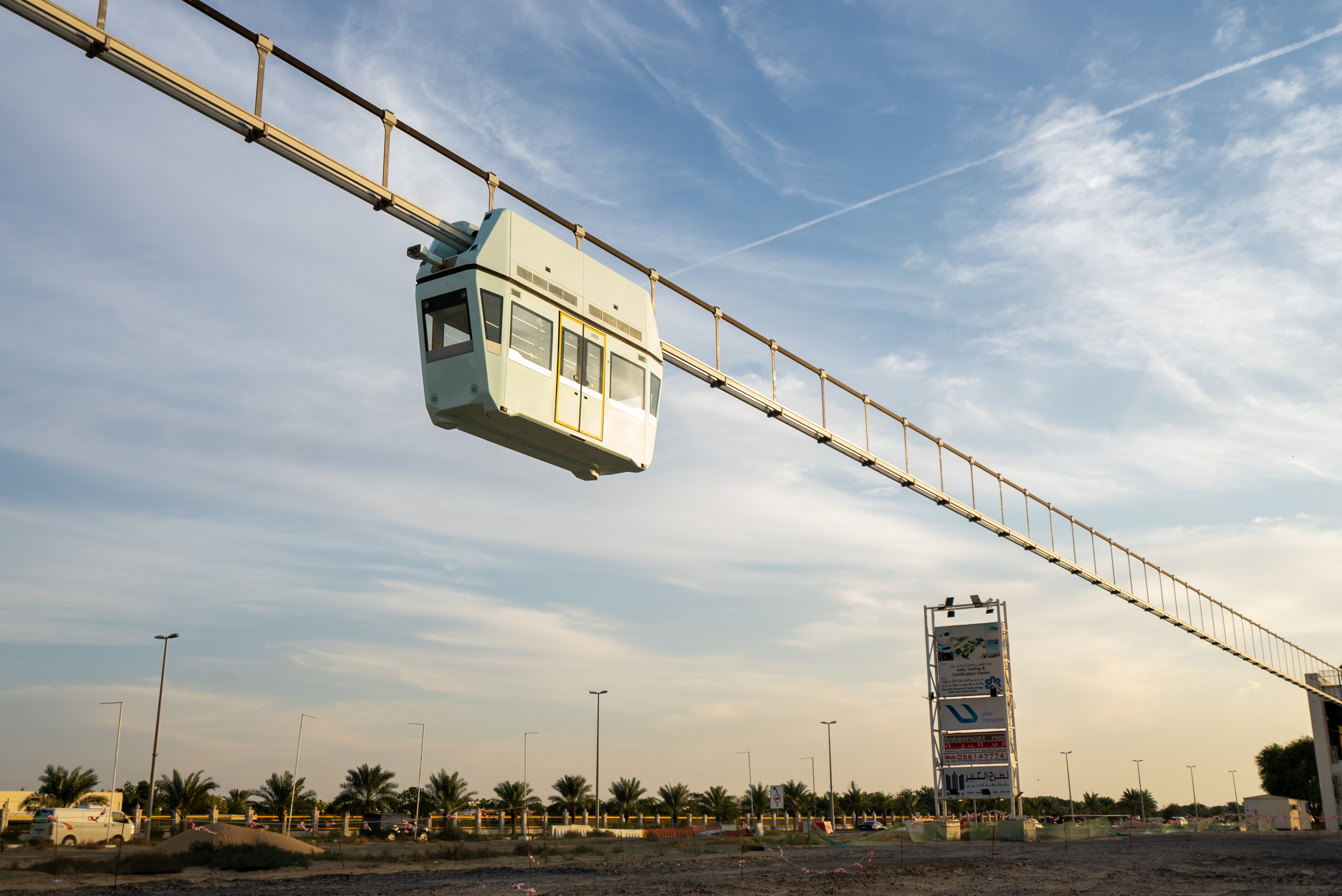
India, Bangladesh, Indonesia, Pakistan—the populations of these and many other tropical countries are growing rapidly. While the number of vehicles is rising, road infrastructure often fails to keep pace. In tropical regions, this issue is further compounded by challenges like extreme heat, flooding, and heavy tropical downpours… However, the Karat complex, a solution developed by Unitsky String Technologies Inc., offers a way to ensure comfortable and safe transportation, even under these extreme conditions.
Tropical heat
Not all vehicles are safe when temperatures soar to extreme levels. In India this June, for instance, air temperatures reached 40°C, but with high humidity, it felt like 50°C. According to Faisal Edhi, head of the Edhi Foundation, which operates the country’s largest ambulance service, the number of heat-related casualties in the first week of the month reached 600, with motorists and commuters stuck in traffic jams being the most common victims.
Motor vehicles in India account for 86% of the country's passenger transportation and 67% of cargo turnover. However, not all vehicles are equipped with air conditioning, and many, such as tuk-tuks, are particularly popular but leave passengers vulnerable to extreme heat, especially during traffic jams.
The 25-seat U4-212 Karat uBus offers a solution. Designed for high-temperature environments, it features an automatic climate control system with increased capacity, maintaining a comfortable cabin temperature even when outside temperatures reach +55°C. Importantly, the system is redundant—if one part of the microclimate system fails, the other continues to ensure passengers' comfort inside the uPod.
UST Inc. engineers conducted preliminary tests in a climate chamber at a temperature of +60°C with 95% humidity. During the tests, the vehicle was operated under load with all systems running: cooling, climate control, hydraulic, electrical, control systems, as well as radars, sensors, readers, multimedia, and others. Despite the extreme conditions, the powerful climate system managed to cool the cabin down to a comfortable 15°C, even with an external temperature of +60°C in the chamber.
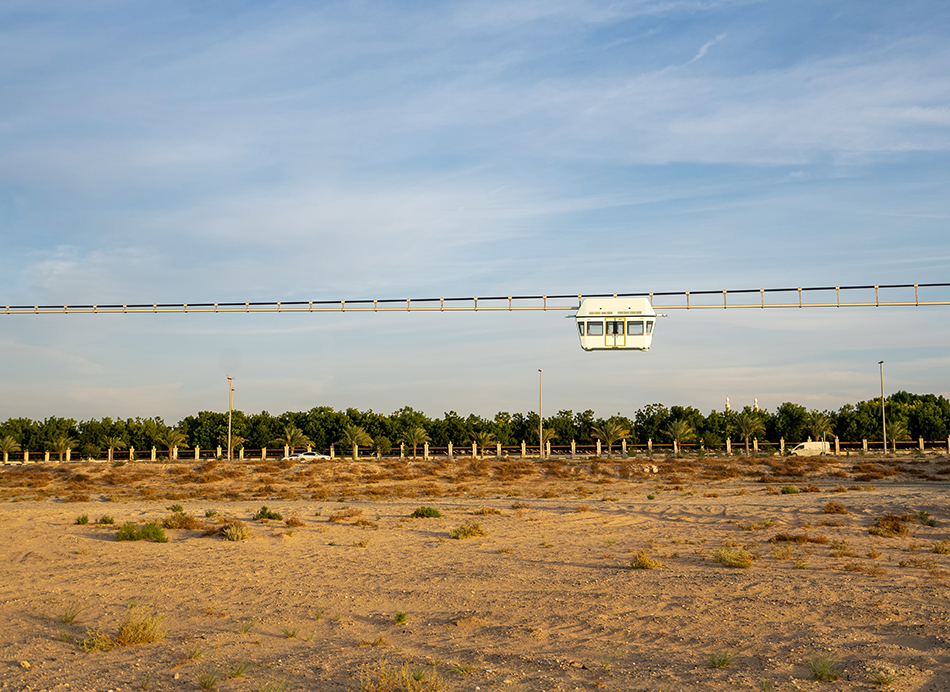
High humidity and washed out roads
Most of Brazil is located in the tropical zone. Across the country, with the exception of the northeastern regions, there is a significant amount of rainfall, typically exceeding 1,000 mm per year. Rainfall is particularly abundant in the eastern and central regions of Brazil, where annual precipitation often exceeds 2,000 mm.
Brazil's road network spans two million kilometers, but only about 10% of these roads are paved. The rest are dirt roads, which become flooded and difficult, if not impossible, to navigate during tropical downpours.
However, by building a second level transport system, this issue, which paralyzes traffic movement, can be resolved. Additionally, all components of the Karat uPod are selected based on the climatic conditions of the region where it will be used. The paintwork, rubber elements, and all exterior parts are designed to withstand the abrasive and aggressive environmental conditions.
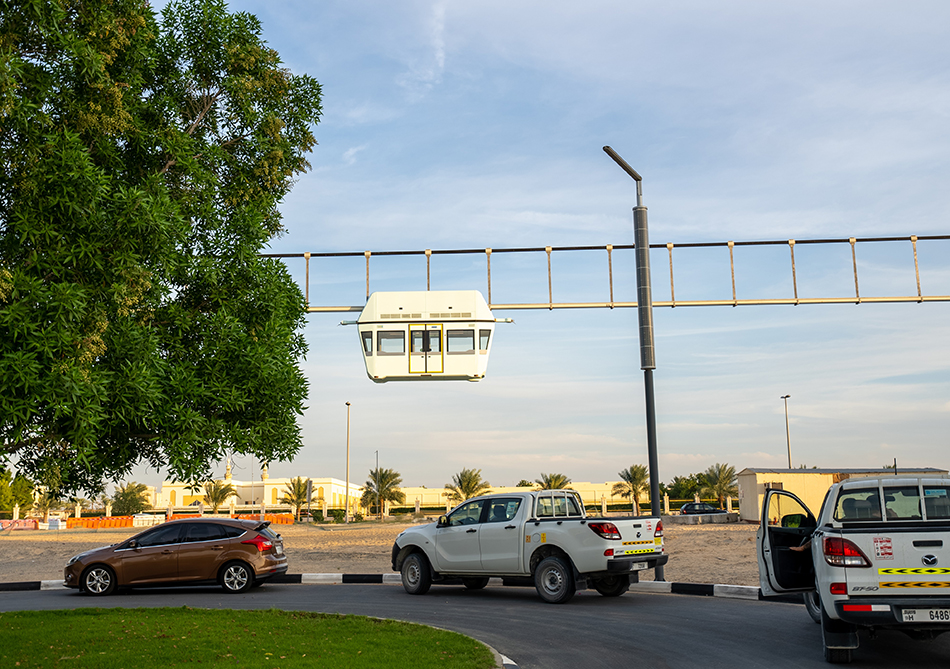
Strong seismic activity
Every year, Indonesia experiences more than 1,000 earthquakes of varying magnitudes, from minor tremors to major quakes. One of the largest occurred on November 21, 2022, in West Java province, where 252 people lost their lives, 31 were reported missing, and at least 377 were injured. Transportation networks were paralyzed as a result.
The string rail overpass is designed to withstand earthquakes. To ensure the stability of the supporting structures against external shocks, special types of foundations are used to absorb vibrations, such as the floating pile foundation. In addition, special sand is used in the supporting structures for vibration damping, and vibration dampers are installed, which operate in counter-phase to the seismic activity.
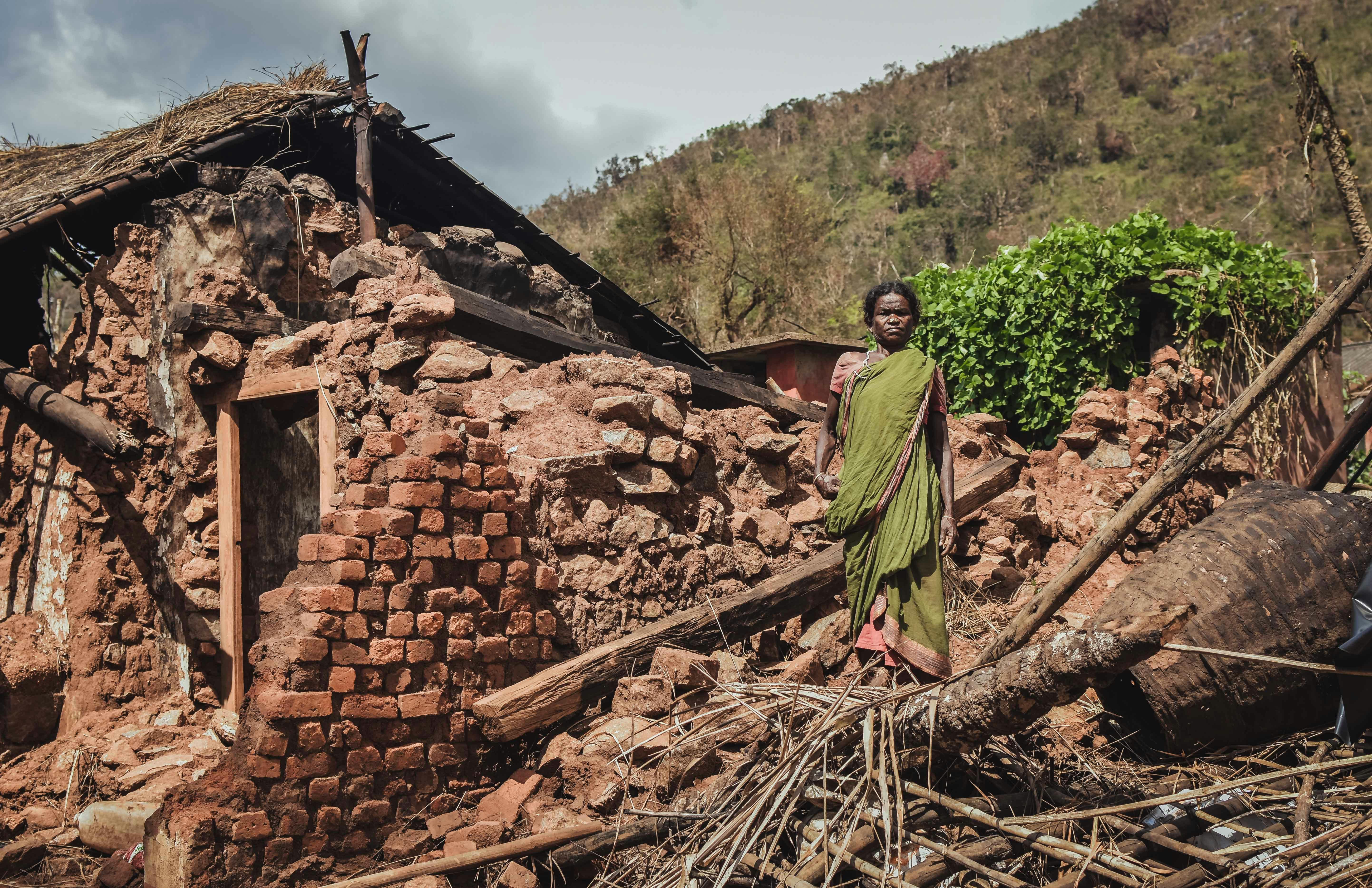
Traffic congestion during rush hour
In addition to climate issues, traffic congestion is a pressing problem in many tropical countries. For instance, in Indonesia, a traffic jam once lasted 35 hours, with drivers stuck on the highway from Jakarta to Tegal during an intense heatwave.
In Brazil, traffic jams can extend for over 100 km. In São Paulo, a city of 20 million people, a massive traffic jam stretched 309 km in November 2013 as most residents headed to the coast to celebrate Republic Day. The Karat complex offers a solution to ease road congestion and eliminate traffic jams. Its track structure operates above ground, avoiding intersections with conventional traffic. By redistributing part of the passenger flow to the "second level", it significantly reduces congestion on the "first level". During rush hours, the number of vehicles can be adjusted to meet increased passenger demand. The uPods are capable of transporting up to 50,000 passengers per hour.
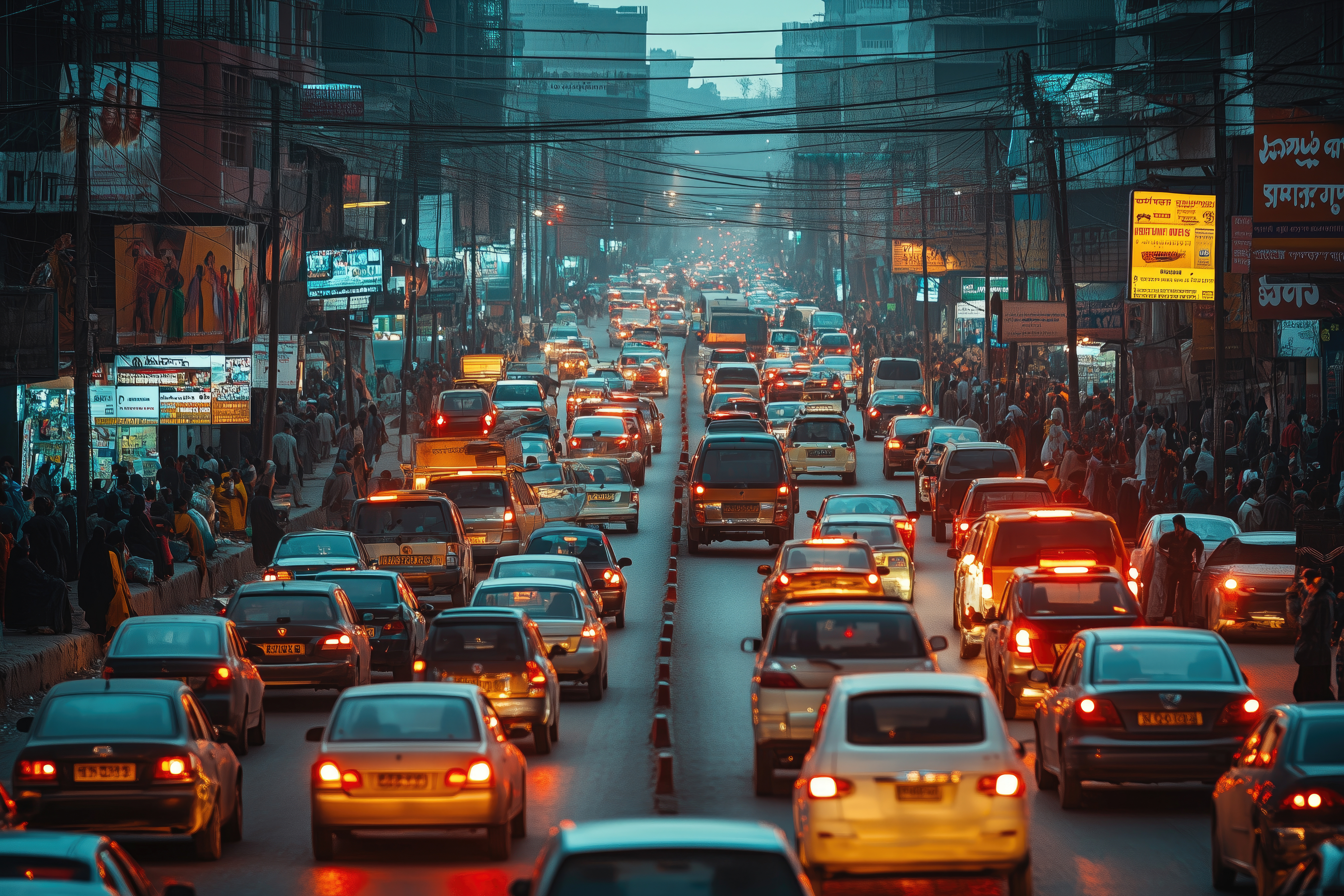
Designed for the tropics
Karat is designed to withstand high temperatures, humidity, rainstorms, floods, and even earthquakes. It operates independently of traffic jams and accidents, ensuring safe and reliable transportation at speeds of up to 150 km/h. This uST complex has the potential to revolutionize the perception of comfortable and efficient transportation in tropical countries.
More news
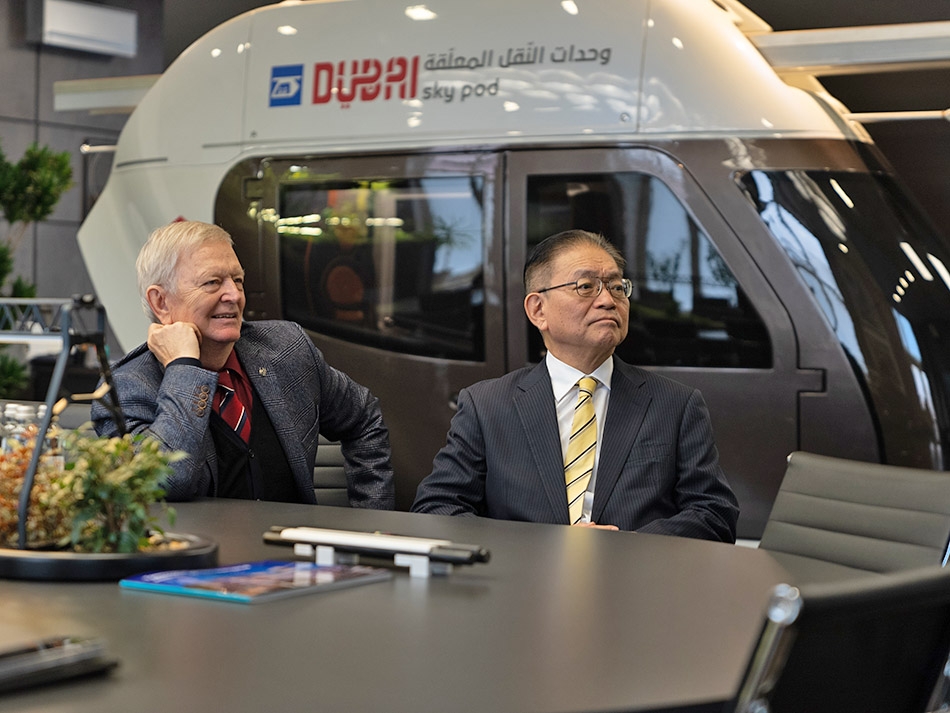
News
3 November 2025
Hiroyuki Yamamoto, Japan’s Ambassador to Belarus, visited UST Inc.
During the meeting, Mrs. Kosareva discussed the company’s ongoing projects and invited Mr. Yamamoto to visit EcoTechnoPark.

News
17 July 2025
Next stage of the project in Taiwan: framework agreement signed
The agreement signed in Tainan lays the foundation for the introduction of uST technologies in the region.
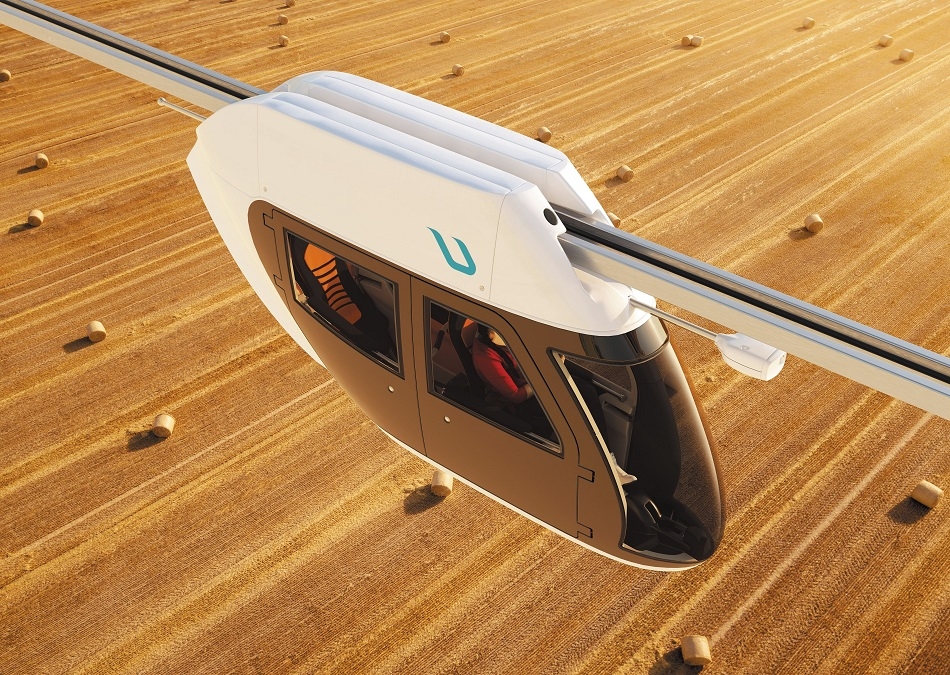
Blog
22 October 2025
Energy Storage Systems: What Powers the uPod
In this article, we will explore in detail the types of batteries used in unimobiles, their advantages, and disadvantages.

